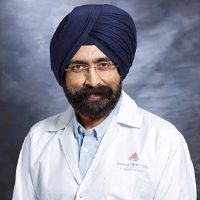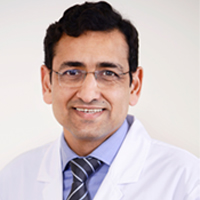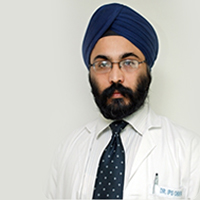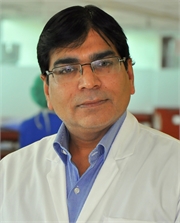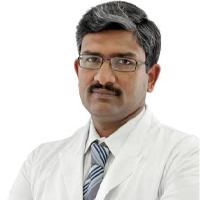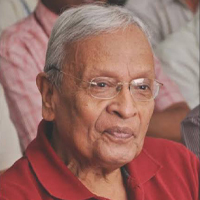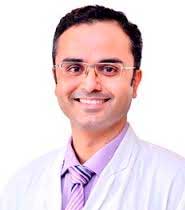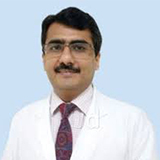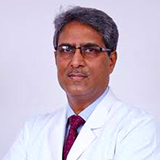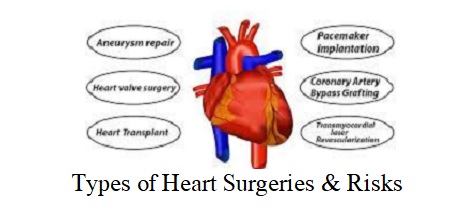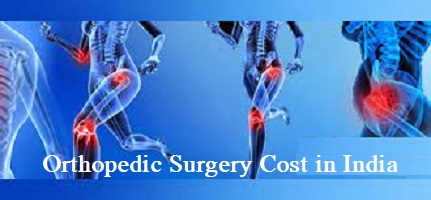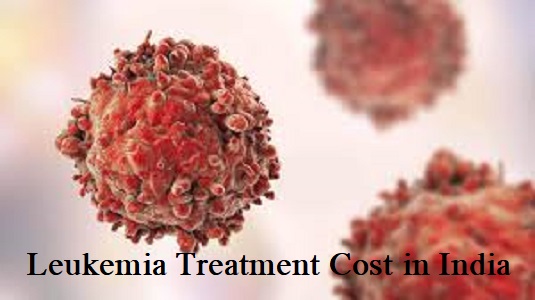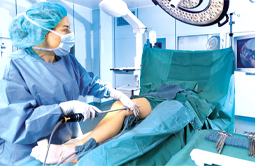
Get Free Treatment Plan From Top Hospital
Attach Medical Report
Coronary Artery Bypass Graft (CABG) Surgery/Heart Bypass Surgery: Cost, Procedure, Risks, & Recovery
Coronary Artery Bypass Grafting (CABG) surgery is also known as heart bypass surgery. It is a medical procedure designed to improve blood flow to the heart by creating a new pathway for blood to bypass blocked or narrowed coronary arteries. CABG is performed in cases where the coronary arteries that supply blood to the heart are blocked or narrowed.
In recent years, there has been an increase in the adoption of minimally invasive techniques for treating coronary artery disease. One such technique is Endoscopic Vein Harvesting for CABG treatment in India, which has gained popularity due to its reduced invasiveness and improved outcomes. This innovative approach involves using smaller incisions and an endoscope, resulting in faster recovery, reduced scarring, and fewer complications than traditional CABG procedures, which require the heart to be stopped temporarily.
However, it is important to note that CABG does not cure the heart disease, but can significantly lower the risk of heart-related complications. Coronary bypass surgery in India is performed at a remarkable rate of half a million surgeries per year, with an overall success rate of approximately 98 percent. By adopting this advanced endoscopic vein harvesting technique for CABG Treatment, doctors in India offer their patients a safer and more effective treatment option for coronary artery disease.
Understanding CABG Treatment
Coronary Artery Bypass Grafting (CABG) surgery is a surgical procedure that is used to address blocked or narrowed coronary arteries. These coronary arteries are responsible for supplying blood to the muscles of the heart. CABG involves the creation of new pathways, or grafts, which effectively bypass the blocked arteries. This improves blood flow to the heart, resulting in relief from chest pain, increased heart function, and a lower risk of heart attack.
Typically, CABG is recommended when other treatment options, such as medication or stents, are insufficient to restore proper blood flow. CABG is considered a safe and effective medical intervention for individuals with coronary artery disease and is typically performed by highly skilled surgeons with specialized training in cardiovascular surgery.
Understanding Endoscopic Vein harvesting Treatment
Endoscopic Vein Harvesting (EVH) is a modern medical technique that involves collecting healthy veins from a patient’s leg for use in coronary artery bypass grafting (CABG) surgery. Unlike traditional vein harvesting, EVH employs small incisions and a special camera, called an endoscope, to guide the surgeon in removing the vein.
Procedure of Endoscopic Vein harvesting
- Small Incision: The surgeon makes a small 3 cm incision near the patient’s knee.
- Vein Dissection: The great saphenous vein (GSV) is carefully separated from the surrounding tissue using an endoscope.
- Harvesting: With the help of camera, any side branches of the GSV are identified and sealed off.
- Extraction: The GSV, about 35 cm long, is extracted through a small incision near the knee and sometimes a 3-mm incision in the groin.
- Minimally Invasive: The surgeon does all of this without having to open up a large part of the body. Minimally invasive surgery is a less traumatic alternative to traditional invasive surgery for patients.
- Removing the Vessel: The procedure involves removing the blood vessel through a small incision while leaving one end connected to the blood supply.
- Completing the Bypass: The harvested vessel is then used to construct a bypass that restores the proper blood flow to the heart muscle.
- Closing the Incisions: The incisions made to insert tools and a camera are small and are closed with stitches, resulting in a quicker recovery, smaller scars, and reduced postoperative pain for the patient.
Endoscopic vein harvesting for CABG treatment is less invasive than traditional open surgery, which involves a wider incision and may be associated with a higher risk of wound complications. EVH allows patients to recover faster from heart surgery, with less pain and scarring.
Benefits of Endoscopic Vein harvesting for CABG Treatment
- Reduced Surgical Trauma: EVH involves fewer incisions and the use of specialized endoscopic tools. This reduces tissue damage, and scarring, and provides a less invasive alternative to open vein harvesting.
- Faster Recovery: Patients who undergo EVH tend to have shorter hospital stays and faster post-operative recovery durations. Because of the minimal stress on surrounding tissues and the smaller incisions, there is less postoperative pain and a faster return to normal activities.
- Lower Risk of Complications: EVH is associated with a lower risk of surgical complications, including wound infections and hematomas, compared to traditional open vein harvesting. This results in improved patient outcomes and reduced healthcare costs.
- Improved Cosmesis: Smaller incisions in EVH result in less visible scarring, which is especially helpful for patients who value cosmetic outcomes or have body image concerns.
- Enhanced Graft Quality: The endoscopic technique allows for more exact vein dissection and harvesting, potentially resulting in more effective transplant quality. This, in turn, can increase the graft’s long-term viability and overall CABG outcomes.
- Less Postoperative Pain: Smaller incisions and decreased tissue trauma result in a more comfortable recovery with less postoperative pain for patients.
- Potential for Less Postoperative Opioid Use: Patients who undergo EVH may require less opioids for pain management, due to reduced pain and discomfort, which in turn reduces the risk of opioid-related complications.
- Shorter Operative Time: Over time, EVH treatments have become more efficient, resulting in shorter operational times, less anesthetic exposure, and less stress on the patient.
- Minimized Risk of Nerve Injury: Traditional open vein harvesting can damage sensory nerves at the incision site. Because of the smaller incisions used in EVH, this risk is reduced, resulting in less postoperative numbness or discomfort.
- Adaptable for High-Risk Patients: Because it reduces overall surgical stress on the body, EVH is more advantageous for patients with comorbidities or those at a higher surgical risk.
Risks Associated with Endoscopic Vein harvesting for CABG Treatment
Some of the risks associated with Endoscopic Vein harvesting for CABG, include:
- Infection: Although EVH reduces the risk of wound infections when compared to open vein harvesting, infection at the incision sites is still possible.
- Bleeding and Hematoma: While the risk of bleeding and hematoma (collection of blood outside blood vessels) is reduced with EVH, they can still occur and require medical attention.
- Nerve Injury: During EVH, there is a minimal risk of damaging nearby sensory nerves, which may cause numbness or discomfort after surgery.
- Graft Quality: Ensuring the quality of the harvested vein is crucial for the long-term success of CABG. Although EVH is designed to provide precise dissection, concerns about graft quality may still arise.
- Patient Selection: Not all patients are suitable candidates for EVH. The condition of the veins, patient anatomy, and underlying health conditions can all have an impact on the decision about using this kind of surgery.
Recovery after Endoscopic Vein harvesting for CABG Treatment
The recovery period after Endoscopic Vein harvesting for CABG varies based on factors such as age, overall health, and the extent of the surgical treatment.
- Hospital Stay: After undergoing the EVH procedure, patients typically need to spend a few days in the hospital for close monitoring. The length of their stay may vary depending on individual factors and the specific surgical plan.
- Pain Management: To manage postoperative pain or discomfort at the incision sites, patients will be provided with pain management strategies such as medication.
- Mobility: Early mobility is encouraged to prevent complications and improve blood circulation. Patients should begin walking and gradually increase their activity level under the guidance of medical professionals.
- Incision Care: Proper care of the small incisions is essential to prevent infections. Doctors will provide instructions for wound care, and patients should keep the incision sites clean and dry.
- Medications: Medications, including pain relievers and possibly blood thinners, will be prescribed as needed to manage pain and prevent blood clots.
- Follow-up Appointments: Patients will have scheduled follow-up appointments with their doctor to monitor the progress of their recovery, assess incisions, and make any necessary adjustments to the treatment plan.
- Gradual Resumption of Activities: Patients should gradually resume their daily activities, taking care not to overexert themselves. Returning to work and physical activities will depend on individual recovery progress.
- Cardiac Rehabilitation: In many cases, doctors recommend cardiac rehabilitation, a structured program that includes exercise, education, and emotional support to help patients regain their heart health and overall well-being.
- Lifestyle Changes: As part of the recovery process, doctors often guide patients in making heart-healthy lifestyle changes. This may include recommendations for diet, exercise, smoking cessation, and stress management.
- Long-term Monitoring: Patients who undergo EVH for CABG will require ongoing monitoring of their heart health. Regular check-ups and adherence to prescribed medications and lifestyle modifications are essential for a successful long-term recovery.
Success Rate of Endoscopic Vein harvesting for CABG Treatment in India
Endoscopic vein harvesting for CABG treatment in India has shown an impressive success rate of approximately 98 percent. Endoscopic vein harvesting (EVH) is a minimally invasive technique which has consistently shown reduced post-operative pain, promoted faster recovery, and lowered the risk of wound infections because of smaller incisions. Although individual patient outcomes can vary, the high success rate underscores the effectiveness and safety of Endoscopic vein harvesting for CABG treatment in India, making it a popular choice for cardiac surgeons and patients who are seeking optimal results.
Endoscopic Vein harvesting for CABG Treatment Cost in India
The cost of endoscopic vein harvesting for CABG (Coronary Artery Bypass Graft) treatment in India normally ranges between $4,000 and $8,200. This estimate includes hospital bills, surgeon’s fees, anesthesia, and follow-up treatment. The endoscopic vein harvesting for CABG treatment cost in India might vary depending on factors such as the hospital’s location, the surgeon’s experience, the patient’s overall condition, and any additional medical services required.
Best Endoscopic Vein harvesting for CABG Treatment Hospitals in India
India offers a large number of options when it comes to finding the Best Endoscopic Vein harvesting for CABG Treatment Hospitals in India. These prominent medical hospitals specialize in cutting-edge cardiac care and have an excellent track record of success. Patients looking for high-quality CABG treatment often go to hospitals in large cities such as Delhi, Mumbai, Chennai, and Bangalore. It is important to select a hospital with accredited credentials and a strong commitment to maintaining good patient care and safety standards.
- Medanta – The Medicity, Gurgaon
- Indraprastha Apollo Hospital, New Delhi
- Fortis Hospital, Gurgaon
- Max Super Specialty Hospital, Gurgaon
- Fortis Escorts Heart Institute, New Delhi
- Manipal Hospitals, Delhi
- Nanavati Super Specialty Hospital, Mumbai
- Kokilaben Dhirubhai Ambani Hospital, Mumbai
- Max Hospital Delhi
Top Endoscopic Vein harvesting for CABG Treatment Doctors in India
Top Endoscopic Vein Harvesting for CABG Treatment Doctors in India introduces patients to a wide range of highly qualified and skilled cardiac surgeons in India. These doctors are well-known for their heart care expertise and have a track record of successful treatments. It is important to ensure that the selected doctor has the necessary skills and expertise to get the best care possible.
- Z S Meharwal – Fortis Hospital Delhi
- Ajay Kaul – Fortis Hospital Delhi
- Sandeep Attawar – Global Hospital Chennai
- Ashok Seth – Fortis Hospital Delhi
- Y K Mishra – Manipal Hospital Bangalore
- Naresh Trehan – Medanta Hospital Gurgaon
- S. K. Sinha – Max Hospital Delhi
- Rajneesh Malhotra – Max Hospital Delhi
- Ramji Mehrotra – BLK Max Hospital Delhi
- Hemant Pathare – Nanavati Max Hospital Mumbai


If you are planning for Endoscopic Vein harvesting for CABG treatment in India and searching for the best Endoscopic Vein harvesting for CABG treatment hospital in India then no worries. Al Alfiya Medi Tour is ready for helping you. We have a team of experienced healthcare consultants. They will help you in finding the best hospital for Endoscopic Vein harvesting for CABG treatment in India. You can choose any top Endoscopic Vein harvesting for CABG treatment hospital in Delhi, Gurgaon, Faridabad, Noida, Chennai, Mumbai, etc. The list of Endoscopic Vein harvesting for CABG treatment hospitals in the main cities- Delhi, Mumbai, Gurgaon, Noida, Faridabad, etc. in India with complete details such as hospital address, phone number, city, and best doctors list, etc. is given below. You can book an online appointment with any hospital now.
Book An Appointment for Endoscopic Vein harvesting for CABG treatment

Get Free Treatment Plan From Top Hospital
Attach Medical Report

India is one of the top emerging medical tourism countries in the world due to the affordable treatment cost in India for patients from any county around the globe. If you are going for Endoscopic Vein harvesting for CABG treatment treatment in India, you should know the Endoscopic Vein harvesting for CABG treatment treatment cost in India. The cost of Endoscopic Vein harvesting for CABG treatment treatment/surgery in India varies from hospital to hospital, city to city and it also depends on the doctor's fee. If you want to know about the exact Endoscopic Vein harvesting for CABG treatment surgery cost in India then contact us anytime 24x7. Our healthcare consultants will help you.

Endoscopic Vein harvesting for CABG treatment success rate in India is very excellent. Although success rate depends on various factors such as hospital, doctor, patient, and many more. You can consult online with our healthcare professionals to know the success rate of Endoscopic Vein harvesting for CABG treatment in India.
Contact Form
Attach Medical Report
Top Doctors & Surgeons in India
Why Choose Us

Personalized Care
24x7 Supports
Top NABH and JCI accredited Hospitals
Free Cost Estimation & Medical Opinion from Specialist
Get Free Tele/Video Consultation
Visa and Traveling Assistance
Post-surgery with Assistance in Follow-ups

